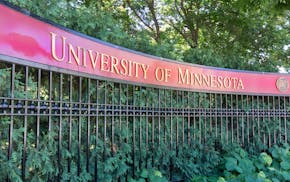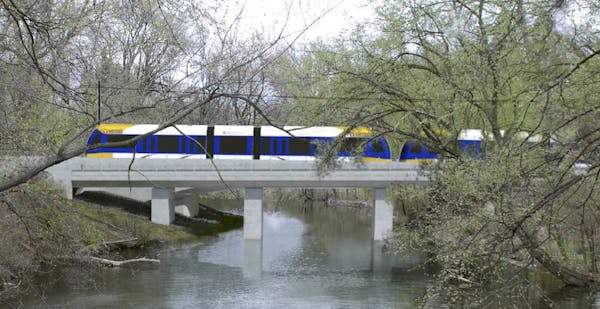As that great baseball player Yogi Berra once said, "It's like déjà vu all over again."
It seemed that way last week when the Metropolitan Council adopted a plan to issue $103.5 million in "certificates of participation" (COPs) to help pay for the $1.9 billion Southwest light-rail project.
Because state lawmakers failed to fund their anticipated share of the project, the Met Council was left scrambling for cash. The project faced imminent shutdown — and with $140 million already spent on it.
This isn't the first time that certificates of participation have been suggested for the project linking Minneapolis and Eden Prairie. Talk surfaced two summers ago and has lingered ever since.
The Met Council first floated the idea as a stopgap measure after failing to win state financial support for Southwest during the 2015 legislative session.
At the time, Rep. Tim Kelly, a Republican from Red Wing who chaired the House transportation committee, wrote to Met Council Chair Adam Duininck, questioning whether the body could legally issue the certificates. After the two met, Kelly said he was assured they were legal but continued to have many concerns. (The Met Council used COPs to renovate its St. Paul headquarters a few years ago.)
In August 2015, I interviewed Jerry Zhao, an associate professor at the University of Minnesota's Humphrey School of Public Affairs, about certificates of participation. He called them "a special kind of revenue bond, with a fuzzy guarantee," and noted that many state and municipal governments pressed for cash use them because they're flexible. In some cases, public hearings are not necessary.
A financing alternative
Issuing COPs is not yet a done deal — the Met Council will try to tap state coffers once again in 2017 for $145 million for Southwest.
But if that doesn't work, it will finance $91.75 million of the certificates, with the Counties Transit Improvement Board (CTIB) financing $11.75 million next July. They will be issued for a 30-year term at around 3.25 percent.
CTIB is a group of mostly elected officials from five metro-area counties that helps fund big transit projects by collecting a quarter-cent metro sales tax, and a $20 sales tax on new cars. The board and Hennepin County also each are contributing an additional $20.5 million to help make up the state's share.
Met Council Chief Financial Officer Mary Bogie said last week that COPs "behave much like debt, but are not debt because investors are relying strictly on the council's credit history and the expectation that the council will continue to budget to make annual payments."
Should the council skip repayment of the certificates, its coveted Triple-A bond rating could be imperiled. Bogie said that the body "would never do that."
On Friday, I called Zhao, an expert on public finance, to see if much had changed over the past two years regarding the use of certificates across the country. It turns out that not much has.
"I'm not surprised [the Met Council] is using them," he said, noting they are often used for big transit projects. In Denver, for example, COPs were used to help construct the Metro North commuter rail line.
I asked Zhao if COPs are a form of debt, in his opinion. Chuckling, he said that "it depends on how people see it. It's a kind of borrowing that's backed on some commitment in the future."
In this case, the Met Council will use its revenue to pay back the certificates. Whether you consider it debt or not, it still needs to be repaid.
Janet Moore • 612-673-7752 @MooreStrib

Going to Wolves or Twins tonight? How to get there (and maybe avoid traffic).
Focusing on bringing football film into frame

